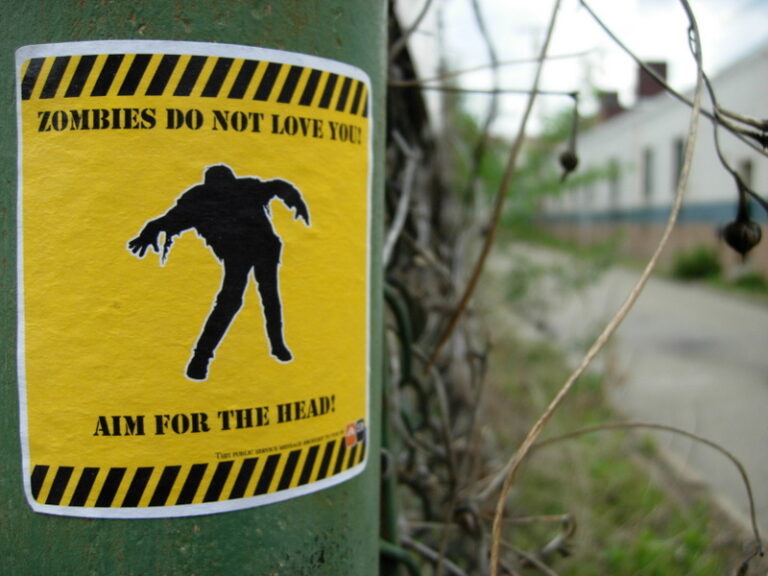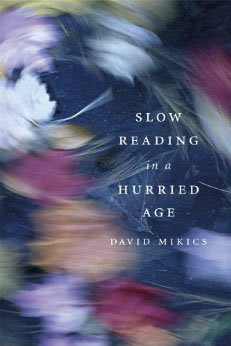Seeing Jenny in Why Didn’t You Just Do What You Were Told?

“Moving Day,” the essay with which Jenny Diski debuted in the London Review of Books in 1992, concerns the three weeks she spent alone in her flat after her boyfriend—or “ex-Live-in-Lover”—with whom she had lived for eighteen months, moved out. The ex-Live-in-Lover comes to remove his things from the flat, and, writes Diski, “In the event, it’s a very jovial affair, with all the brittleness and pretence that joviality implies. So, eighteen months after the beginning of the Great Experiment, I do all I can to be amiable and assist. He says he’s pleased to see me smile at him. I smile away as we pack things into boxes, disconnect machines, fill black binbags with socks and underpants.” There’s both buoyancy and wryness to the tone here, and the moment Diski describes herself “smiling away,” I trust her wholeheartedly as a narrator. On the first page of this first essay in Why Didn’t You Just Do What You Were Told?, a selection of 33 of the more than two hundred essays that Diski wrote for the LRB until her death in 2016, I see that in these essays we will encounter a writer who is able to see herself as a character—a character who smiles away, pretending at amiability as she assists her ex-Live-in-Lover in moving out; who wakes the next day to the sound of her cat being sick (“I hadn’t planned for this”); who wonders at her own crying (“It feels like sadness, but not mine”); who speaks to a man from Bristol about depression, goes to visit the orangutans at the zoo, and drinks coffee, smokes, and writes:
It is a kind of heaven. This is what I was made for. It is doing nothing. A fraud is being perpetrated: writing is not work, it’s doing nothing. It’s not a fraud: doing nothing is what I have to do to live. Or: doing writing is what I have to do to do nothing. Or: doing nothing is what I have to do to write. Or: writing is what I have to do to be my melancholy self. And be alone.
Seeing oneself as a character is what enables the writer of a personal essay to extract insight from the muck of their sadness, confusion, and grievances. Instead of miring in the muck of self, the writer can observe and study the self, as they might observe and study any other character. In The Situation and the Story, Vivian Gornick compares the task to “lying down on the couch in public,” and asserts that the illumination of one’s material is possible only when the writer creates a narrator “whose existence on the page is integral to the tale being told. This narrator becomes a persona.” This persona makes not only insight possible, but also pleasure; the pleasure of reading Diski’s essays, whatever their subject (two-thirds are book reviews) is in spending time with her persona—opinionated, funny, and endlessly curious.
Diski herself, however, might question the premise that seeing oneself as a character enables the illumination of one’s material. In the long essay “A Feeling for Ice” (which she later expanded into the book Skating to Antarctica), she says that she sees her childhood self, whom she calls “Jennifer,” as a third-person character: “I remember Jennifer with about the same clarity that I remember the young Jane Eyre, Mary from The Secret Garden, Peter Pan and Alice. Rather less clarity, in fact, since the last four are readily available on my bookshelves and I have reacquainted myself with them quite regularly. . . . As a person, she is far less substantial than Tinkerbell, who can be brought back into existence through the will of others.” She explains after her father died and her mother disappeared, no one was left in her life, other than herself, to remember what she was like as a child. Trauma, too, explains her dissociation from Jennifer. Her father was a con artist and womanizer who, too, disappeared from time to time, her mother was psychologically unstable, and both were suicidal and sexually abused her. “I could recollect her environment with a greater clarity than I could her lived experience,” says Diski of Jennifer. She sees Jennifer as a character in order to protect herself, not to understand herself.
Even so, Diski gains some insight into Jennifer—and through her, into herself. She contacts some of the women who lived in neighboring flats in Paramount Court, where she lived as a child, and among other questions she asks, “I wonder how you remember me as a child.” What she hears—“You always knew how to stand up for yourself”—pleases her; she writes, “It also chimed with other memories of my childhood. Mostly, they were memories of being in trouble, of refusing to back down, of demanding my rights. There was a tough child, right from the start, with a sense of herself: a survivor, to put against the flaky genes and the training in hopelessness.” The affirmation reassures her against the worry that she “hadn’t got a hope in hell” that, unlike her parents, she might actually be “all right.”
“A Feeling for Ice” is about Diski’s “wish for whiteout,” which is a wish for escape to “a place of safety, a white oblivion.” At one time she thought she might find that escape in a psychiatric hospital, but, instead, she found that “we weren’t allowed to be depressed in the bin.” Next, she seeks that escape in Antarctica, though she worries about having her wish fulfilled: “If you could have what you dream about, if I could have Antarctica all white and solitary and boundless, there would finally be no excuse. Imagine, you are exactly where you want to be; and now what? Yes white, yes solitary, yes boundless, but will it, in its icy, empty, immense reality, do?” As it turns out when she finally gets to Antarctica, “it is hardly white, covered as it is with the green, pink and yellow droppings of tens of thousands of penguins”—and yet, she doesn’t seem to mind. For one thing, the penguins themselves are a marvel, “standing in a line waiting their turn to leap onto a small ice shelf, one by one. Once on the shelf they dive into the sea and then vault back onto the ice shelf, then onto land to go to the back of the queue and have another go. There is no purpose in this, other than that it looks like a lot of fun.” For another thing, writes Diski, “The point of desire is desire itself, the essential pleasure in expectation is expectation. The idea that reality is a completion of the wish is fallacious.”
There are echoes here of Diski’s questioning of the aims of psychoanalysis in a later essay on The Last Asylum: A Memoir of Madness in Our Times, in which Barbara Taylor writes about the treatment of her mental illness, including twenty-one years of analysis and stays in psychiatric hospitals. Diski is a vivid presence in this essay; after explaining that it “is not even a pretence at a neutral, objective review” of Taylor’s book, she dramatizes her reaction to it, which included spluttering to her husband, “I should have been MUCH madder than I was. I haven’t been NEARLY mad enough. . . . I’ve been cheated out of a proper madness.” What provokes her is that the feelings that Taylor describes, the ones that demanded twenty-one years of analysis, are feelings that Diski says she feels “every hour of every day.” But Diski would never submit to twenty-one years of analysis; she has refused, when in therapy, “to get aboard the interpretation train to a place where I might perhaps fully grasp my situation and . . . feel better.” Taylor’s account of her analysis and what she calls her “cure” confirms Diski’s skepticism. In analysis, Diski perceives, any interpretation is at best provisional, providing not the truth but a good enough explanation. Additionally, she argues, even an interpretation that provided the truth would not suffice for a cure; she writes, “So I’m suffering from my mother’s lack of love for me. I know! What shall I do about it? What is there to do about it?”
Nevertheless, despite her expectation that both the fulfillment of wishes and the discovery of the truth bring one only to an impasse (“. . . and now what?”), Diski doesn’t stop trying to understand either herself or other people. By far the majority of her book reviews selected for this collection are of biographies, memoirs, or diaries; as her daughter, Chloe, writes in the afterword, the books Diski was given to review were “mainly about people, which allowed Jenny to use herself and the subject to show and explore life’s complications.” “I suppose the world divides into those who look and those who look away,” writes Diski in an essay on Brian Masters’s The Shrine of Jeffrey Dahmer. She is of course among those who look, though she concludes that Dahmer is not much worth looking at; “I doubt that his actions can tell us more than we know already from myth, story and fantasy,” she writes, after also questioning whether wickedness is really any more mysterious than goodness is. Others she finds wanting in interest include Princess Diana (“Take the bright lights away and you have a regular messy divorce, friends taking sides, money, adultery, using the kids”), Princess Margaret (she was “convinced by page xix” of Tim Heald’s biography that there was nothing interesting about her), and Roald Dahl (who, “it emerges, was exactly what he seemed to be,” which was “not a very nice man who wrote not very nice, though hugely popular, books and short stories for children and adults”). Those she finds interesting are often ancillary characters, such as Denis Thatcher (interesting not so much in himself—a “dismal confirmation that stereotypes live and breathe”—than as an opportunity to eviscerate Thatcherism in all its self-satisfied hollowness), Elisabeth Nietzsche (largely responsible for the “transformation of her brother’s work into a Nazi cookbook”), and Martha Freud (whose domestic contentment, we learn, may have been fueled by the cocaine she used from time to time).
And of course, revealed in every essay, whether it be a personal essay or book review, is Diski herself. “The essays are about what they are about, but they are, essentially, about Jenny,” writes her daughter; even an essay on Cubed by Nikil Saval, a history of the office, is an occasion for Diski to remember occasional visits to offices with her father, to which she went “went with joy as to Santa’s grotto,” the central delight being the stationery cupboard: “in which you could be perfectly alone with floor-to-ceiling shelves laden with neat stacks of packets, piles and boxes, lined up, tidy, everything patiently waiting for you to take one from the top, or open the lid and grab a handful.” This celebration of office supplies goes on for nearly three pages, charged throughout with Diski’s love of writing: “The pleasures of the clean new page, or a stiff unmarked notebook, the sharp perfectly conical tip of an unused pencil, the crisp blank blue of an unmarked carbon or a black unstruck typewriter ribbon, cloth or plastic.”
The doing nothing that is writing, which gave her so much pleasure and, she says, enabled her to be her “melancholy self,” was in fact a kind of salvation for Diski. She might contend that self-understanding leads to no “cure,” but her daughter says that it was a therapist who got her to start writing—not for any therapeutic reasons, but simply because Diski talked so much about wanting to write—and that the writing enabled her to become “far more well headed.” Diski’s public persona was a source of shame. She writes, “I can perform at other people’s dinner tables like a chattering magpie, arguing and picking up on the conversation to make a joke or say something smart. Then I go home covered with a layer of self-disgust as if I’d been rolling in donkey shit, and for a day or two afterwards, I stay in bed with the covers over my head in shame.” I wonder if she ever felt anything comparable about the persona in her writing; I sometimes do about my own, but I suspect that Diski did not, despite the boldness of her presence on the page. Perhaps all of this exploration of the self and of other selves led to nothing that Diski would call a “cure.” So what? Wasn’t the pleasure of writing enough in itself? And as I see it, how can there be an end in wanting to know—about Jenny Diski, any of her subjects, or any other example of what it is to be a human in this world?
This piece was originally published on April 19, 2021.


